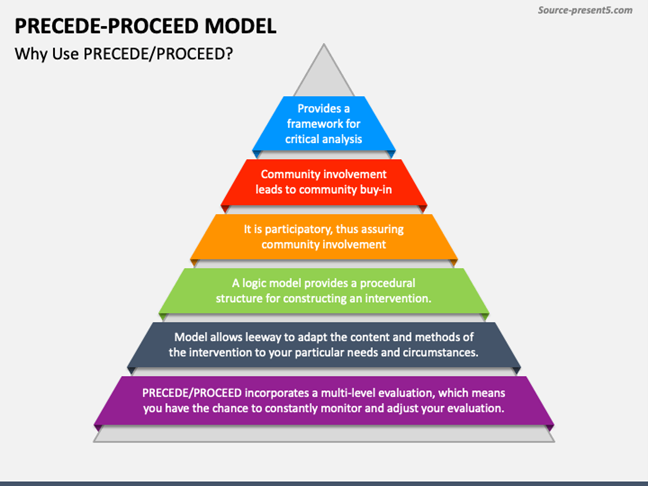The social cognitive theory emphasizes that:
Human behavior is shaped by reoccurring patterns of activity that take place in a structured environment.
Behavior is learned by observation, imitation, and positive reinforcement.
Communication and information processing play a central role.
Focus should be on the health of a person, not the disease.
The Correct Answer is B
Social cognitive theory emphasizes that people learn by observing others, with the environment, behavior, and cognition acting as primary factors that influence development in a reciprocal manner.
A major component of the theory is observational learning: the process of learning desirable and undesirable behaviors by observing others, then reproducing learned behaviors in order to maximize rewards.
Choice A is not the answer because human behavior is not only shaped by reoccurring patterns of activity that take place in a structured environment.
Choice C is not the answer because communication and information processing are not the only central roles in social cognitive theory.
Choice D is not the answer because social cognitive theory does not focus solely on the health of a person, not the disease.
Nursing Test Bank
Naxlex Comprehensive Predictor Exams
Related Questions
Correct Answer is D
Explanation
The PRECEDE-PROCEED model would be a good choice for the group to use.

This model is a comprehensive structure for assessing health needs and designing, implementing, and evaluating health promotion and other public health programs.
It provides a framework for understanding the multifactorial nature of health and the multiple levels of intervention that may be needed to address complex health issues.
Choice A is incorrect because the Social Cognitive Theory focuses on the interaction between individuals and their environment, but does not provide a comprehensive framework for assessing community health needs.
Choice B is incorrect because the Diffusion of Innovation Theory focuses on how new ideas and technologies spread within a population, but does not provide a comprehensive framework for assessing community health needs.
Choice C is incorrect because the Health Belief Model focuses on individual beliefs and attitudes towards health behaviors, but does not provide a comprehensive framework for assessing community health needs.
Correct Answer is A
Explanation
The verb “identify” is the most appropriate to use in a learning objective that will measure the patient’s level of “understanding” of signs and symptoms of hypoglycemia (low blood sugar).
This verb corresponds to the cognitive level of understanding or comprehension, which focuses on the ability to grasp or construct meaning from material.
- Inject is incorrect because it does not correspond to the cognitive level of understanding or comprehension.
- Design is incorrect because it does not correspond to the cognitive level of understanding or comprehension.
- Develop is incorrect because it does not correspond to the cognitive level of understanding or comprehension.
Whether you are a student looking to ace your exams or a practicing nurse seeking to enhance your expertise , our nursing education contents will empower you with the confidence and competence to make a difference in the lives of patients and become a respected leader in the healthcare field.
Visit Naxlex, invest in your future and unlock endless possibilities with our unparalleled nursing education contents today
Report Wrong Answer on the Current Question
Do you disagree with the answer? If yes, what is your expected answer? Explain.
Kindly be descriptive with the issue you are facing.
